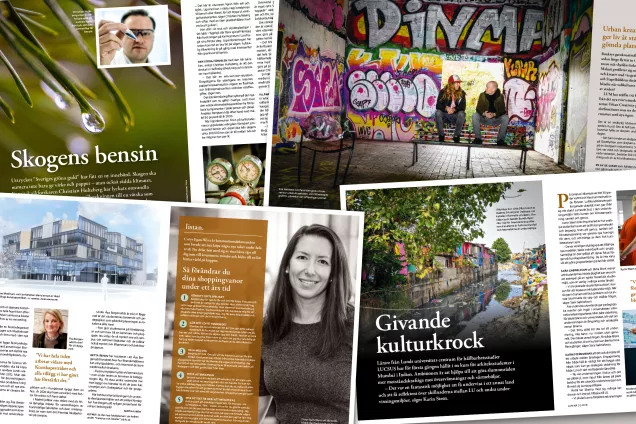“But the price has been incredibly high. I had the strength and endurance to work myself really far into the ground before I collapsed completely”, says Ingela Steij Stålbrand, senior lecturer in psychology.
It has now been two and a half years since she was put on sick leave and went home to lie down. She slept for months, before she was even able to attempt the first step towards recovery.
“Before my sick leave, I believed I was in the process of getting dementia, I used to forget the names of my nearest and dearest.”
Nowadays, Ingela Steij Stålbrand occasionally still searches for words and she is unable to work full time. But she now knows exactly how much work she can withstand and what other things in life she needs time and energy for. The way back has been long and difficult, as was the way into exhaustion.
“I started working incredibly long hours already as a doctoral student, without allowing time for proper recovery. That was the culture I saw around me, everyone seemed to be working a lot. I believed that was what it took to succeed – to get grants and work.”
She describes herself as a country girl, with no prior knowledge of how to advance within the academic world. During her sick leave, Ingela Steij Stålbrand started to keep track of what she did with her time, so as to learn to assess time realistically.
“I went into it with a sort of researcher perspective, I wanted to map time so as to understand where it went. Before my sick leave, I always felt under pressure, I had lost the ability to keep a deadline and was always late.”
Now she knows it takes half an hour to clean up after dinner and if she can’t face it – then it’s time to work less. Today she plans to allow time and energy for relationships and fun things – like diving, meeting friends and going to concerts. During her rehabilitation, her manager suggested she should meet with a time mentor, a successful colleague at the department who brought in funding, without working around the clock. Ingela Steij Stålbrand carefully studied which tasks her mentor did and which ones she chose not to do.
“She said no to things, even if colleagues became angry. I am trying to learn from that.”
She also learnt to spend less time on her teaching, which consumed far too much of her research time. Now she is finding enough time for research as well.
Jenny Loftrup



